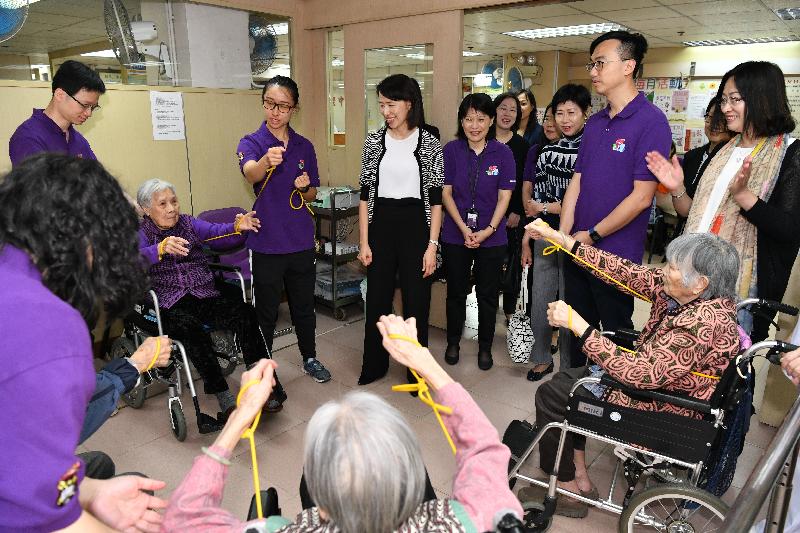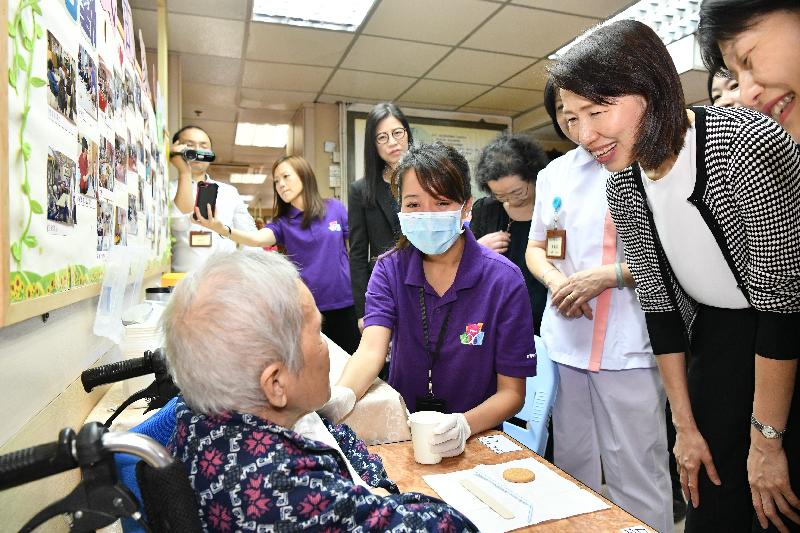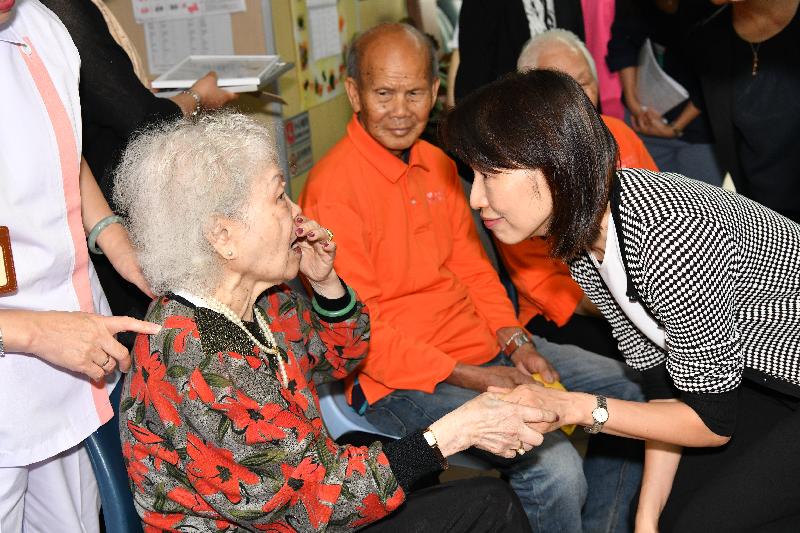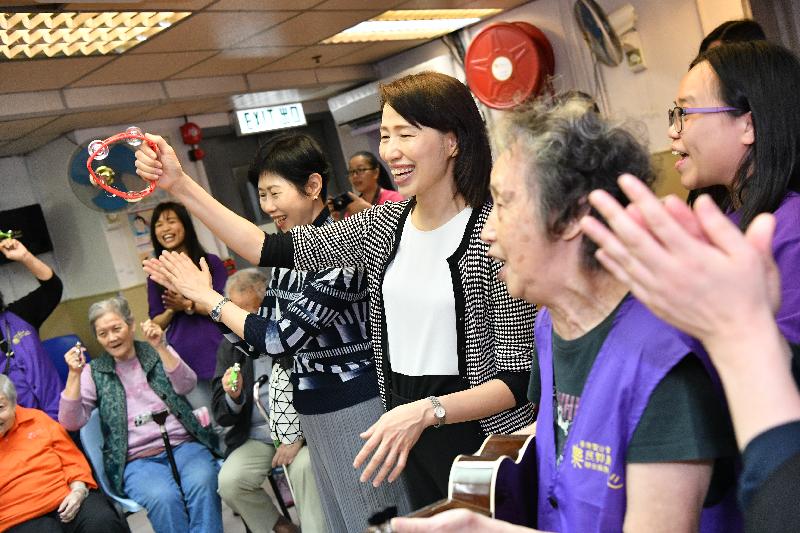DSW visits residential care homes for elderly and persons with disabilities (with photos)
The Director of Social Welfare, Ms Carol Yip, today (April 9) visited a private residential care home for the elderly (RCHE) and a private residential care home for persons with disabilities (RCHD) in To Kwa Wan and Kwai Chung respectively to see the implementation of the recently launched Visiting Medical Practitioner Service (VMPS) and the pilot schemes of professional outreach teams for residential care homes. She also listened to residents' feedback on these services.
To continuously enhance the service quality of RCHEs and RCHDs, the Social Welfare Department (SWD) has not only strengthened the visiting medical practitioner service for subvented RCHEs and RCHDs through provision of additional subvention, but also started to provide the VMPS through non-governmental organisations to residents of all private and self-financing RCHEs and RCHDs since last October. The measure aims to promote proactive response to seasonal influenza and other episodic illnesses, improve the general health of residents and reduce their reliance on the public healthcare system. The measure, involving an additional annual expenditure of about $238 million, is expected to benefit about 80 000 residents of RCHEs and RCHDs.
In addition, the SWD launched a four-year Pilot Scheme on Multi-disciplinary Outreaching Support Teams for the Elderly (MOSTE) in mid-February 2019. Under the district-based MOSTE, social workers, physiotherapists, occupational therapists and speech therapists provide free outreach support services for residents of private RCHEs. It also provides speech therapy service for elderly persons at contract RCHEs (including the Day Care Units attached to contract RCHEs) and self-financing RCHEs/nursing homes with swallowing difficulties or speech impairment. It is expected that about 45 000 residents of private RCHEs could benefit from the pilot scheme, which will incur an additional annual expenditure of about $219 million.
Since this March, the SWD has also implemented the Pilot Scheme on Professional Outreaching Teams for Private Residential Care Homes for Persons with Disabilities, under which social workers, physiotherapists, occupational therapists, speech therapists, registered nurses (psychiatric), clinical psychologists and more provide free multi-disciplinary outreach services to support the social and rehabilitation needs of about 4 000 residents of private RCHDs, as well as their family members/carers and the home staff. An additional annual expenditure of about $60 million is incurred.
During the visits, the persons-in-charge of the two homes briefed Ms Yip on the utilisation of the above-mentioned outreach services. They said that these on-site services provide support to the residents in different dimensions. Apart from enhancing the prevention work of communicable diseases, the VMPS saves the residents who feel unwell from queuing for services in a hospital or clinic and helps provide timely medical treatment at the early stage of an illness. The pilot schemes on outreach teams provide professional assessment and training for residents in various aspects including muscular, speech and swallowing abilities, thereby improving their health and quality of life.
Ms Yip also chatted with residents during her visits and listened to their feedback on the new initiatives. Residents and their family members expressed gratitude to the visiting doctors and therapists for their concern and support. They also showed appreciation for the new outreach services which directly enhance the care services of the homes for residents. In addition, the service operators of the outreach teams have connected different organisations (including district elderly community centres and schools) in the community and mobilised volunteers to provide services at care homes, bringing happiness and vitality to the care homes. The service operators also noted that it is meaningful to provide on-site services to elderly people and persons with disabilities genuinely in need of concern, and their staff (including experienced therapists) are pleased to provide services which suit residents' rehabilitation needs.



